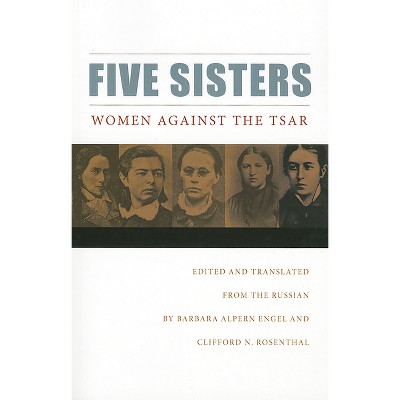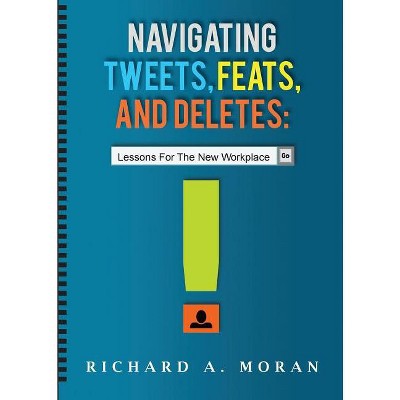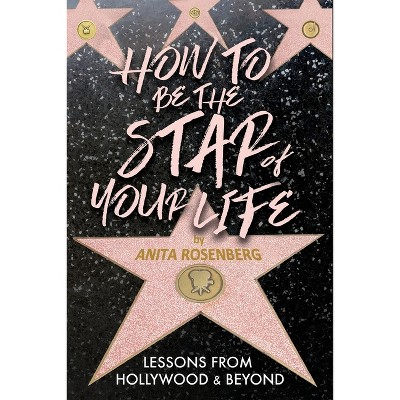Sponsored

This Leaves Me Okay - by Walter Pryor (Paperback)
In Stock
Sponsored
About this item
Highlights
- Lucille "Mama Ceal" Hatch Eldridge wrote to her grandson Walter Pryor weekly for nearly 30 years, from his boyhood until she died at 80.
- Author(s): Walter Pryor
- 216 Pages
- Biography + Autobiography, Cultural, Ethnic & Regional
Description
About the Book
"Lucille "Mama Ceal" Hatch Eldridge wrote her grandson Walter Pr yor weekly for nearly 30 years, from the time he was very small until she died at 80. What is most extraordinary is that she was not a well-educated person, having completed only the eight grade, and as a live in maid raising other people's children, she had little leisure time. Her letters, sprinkled throughout This Leaves Me Okay helped Pryor profoundly to feel he mattered. It shares a local's perspective of the lesser-known rural Arkansas Black experience and tells Mama Ceal's story while weaving through the times and social mores of some of the most well-known civil rights struggles. Pryor shares the demoralization of knowing Mama Ceal's great-grandchildren must still grapple with too many race and equity challenges that she had to f ace. He asks, and the story answers: how did this woman, who was devalued in American society, figure out how to make her small world better and stay hopeful for her family's future?"--Book Synopsis
Lucille "Mama Ceal" Hatch Eldridge wrote to her grandson Walter Pryor weekly for nearly 30 years, from his boyhood until she died at 80. Most extraordinarily, Mama Ceal was not a well-educated person, having completed only the eighth grade. As a live-in maid, raising other people's children, she had little leisure time to write. Yet, her letters, sprinkled throughout This Leaves Me Okay (Heliotrope Books, May 2025), helped Pryor profoundly to feel he mattered. His reflective memoir shares a local's perspective of the lesser-known rural Arkansas Black experience through his grandmother's story and interweaves well-known civil rights struggles that Pryor and his family recall. A CAO and General Counsel now at a financial institution that supports underserved communities, Pryor shares the demoralization of knowing Mama Ceal's great-grandchildren must still grapple with too many race and equity challenges that she had to face. He asks, and the story answers: how did this woman, who was devalued in American society, figure out how to make her small world better and stay hopeful for her family's future?
Review Quotes
"The interweaving of memory, story, and social commentary is deftly achieved, and the handwritten letters carry a poignancy that makes me wish I had met Moma Ceal."
-Stacey Abrams, author, Our Time is Now, lawyer, politician
"This Leaves Me Okay puts the reader into a rural corner of the deep South. There, like a time traveler, we accompany his grandmother Lucille through the Reconstruction, Jim Crow, and Civil Rights eras. We learn about what it means to be Black in White America from one determined Black woman...."
-Eric Holder, co-author, Our Unfinished March, former U.S. Attorney General
"A rare offering of Black portraiture that is at once a finely quilted, poignant testimonial exposing the obscured dynamics of the American South through the intimately personal gaze of a grateful grandson. Touching, warm, tender, and thoughtful as a handwritten letter or a homemade quilt, This Leaves Me Okay will never leave you."
-Saul Williams, poet, winner Sundance Festival Grand Jury Prize; Cannes Camera D'Or
"I've interviewed many folks about parenting, including Barack Obama, but oh, how I love the mothers and fathers in This Leaves Me Okay. I marvel at how these families, dealing with marginalization and few opportunities, found ways of coping and advancing by working together - all for the sake of their children. Pryor's 'jolie-laide' story inspires."
-Tatsha Robertson, editor-in-chief, The Root
"Using as his guide the wisdoms of a grandmother whose unceasing letters shaped his heart and inflamed his ambitions, Walter Pryor has written a moving and elegant reconstruction of the struggles and triumphs of a Black family's journey from the imposed poverty of segregation to the fragile prosperity of today's divided America."
-Douglas A. Blackmon, winner of the Pulitzer Prize
Shipping details
Return details
Trending Non-Fiction

















